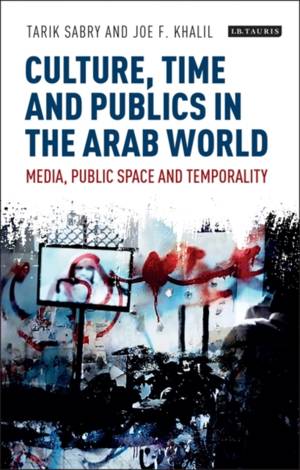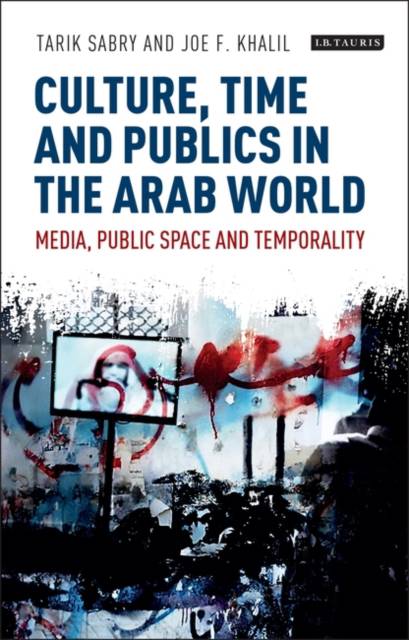
Je cadeautjes zeker op tijd in huis hebben voor de feestdagen? Kom langs in onze winkels en vind het perfecte geschenk!
- Afhalen na 1 uur in een winkel met voorraad
- Gratis thuislevering in België vanaf € 30
- Ruim aanbod met 7 miljoen producten
Je cadeautjes zeker op tijd in huis hebben voor de feestdagen? Kom langs in onze winkels en vind het perfecte geschenk!
- Afhalen na 1 uur in een winkel met voorraad
- Gratis thuislevering in België vanaf € 30
- Ruim aanbod met 7 miljoen producten
Zoeken
Culture, Time and Publics in the Arab World
Media, Public Space and Temporality
€ 194,45
+ 388 punten
Omschrijving
In this revealing new study, Tarik Sabry and Joe Khalil preside over an original new exploration of Arab culture. They employ subjects as varied as anthropology, media studies, philosophy, political economy and cultural studies to illuminate the relationship between culture, time and publics in an Arab context, whilst also laying the foundations for a much more nuanced picture of Arab society. The diverse themes and locations explored include communities at borders, in rural and urban locations, Syrian drama audiences, Egyptian, Saudi and Tunisian artists and activists and historical and contemporary Arab intellectuals. This fresh empirical research and interdisciplinary analysis illuminate intricate experiences that transcend local, national and religious boundaries and expose how Arab publics combine the media and technology to create a rich experience that shapes their collective imagination and social structure. Providing a grounded orientation to key debates on time and what can be defined as public in modern Arab cultures, Sabry and Khalil address teachers, students and those concerned about the delicate structures that underpin the upheavals of the modern Arab world.
Specificaties
Betrokkenen
- Uitgeverij:
Inhoud
- Aantal bladzijden:
- 224
- Taal:
- Engels
- Reeks:
Eigenschappen
- Productcode (EAN):
- 9781788311915
- Verschijningsdatum:
- 30/05/2019
- Uitvoering:
- Hardcover
- Formaat:
- Genaaid
- Afmetingen:
- 140 mm x 216 mm
- Gewicht:
- 403 g

Alleen bij Standaard Boekhandel
+ 388 punten op je klantenkaart van Standaard Boekhandel
Beoordelingen
We publiceren alleen reviews die voldoen aan de voorwaarden voor reviews. Bekijk onze voorwaarden voor reviews.








